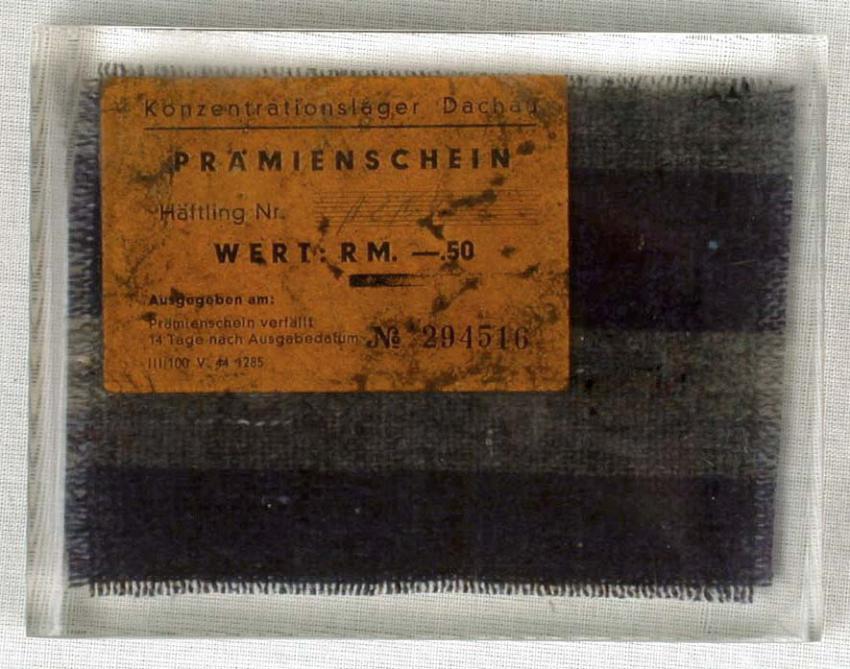Following the Nazi invasion of Yugoslavia, Leo Goldner fled from Belgrade together with his wife and family to an area that was under Hungarian control. In 1942, he was drafted into the Hungarian labor battalions and sent away for forced labor. After almost three years, at the end of 1944, Leo Goldner was marched on foot with a group of Jews to Vienna, Austria.
In Vienna, the prisoners were loaded onto an SS-supervised train and sent to Dachau.
"One morning at the end of April, Appel (roll call), quick quick, and we were leaving. We didn't know [where to]" recalled Goldner in his testimony.
"We started walking, the whole camp, a whole convoy. 2,000-3,000 people from the camp, all on foot, in the direction of Munich.They wanted to take us towards Austria, but that night they received an order to leave us in a camp near Munich called Allach… For a day or two we heard the sounds of American artillery at night… the next morning we saw that the German Army had left and that the SS had completely disappeared … At about nine o'clock in the morning we saw our first American soldier in front of the camp. I was near the gate and then we were liberated."
Goldner was liberated by the US Army at the Allach camp on 30 April 1945.
He described his feelings on liberation.
["What was the first thing you wanted to do after your liberation? Eat?"]
"No. Definitely not. Several people went immediately to the food stores. They broke down the doors, took food… but nearby there was some sort of anti-tank position and I walked for several hours after my liberation to see what was there. I found a little Jew there, a red-headed Polish Jew, who was cooking potatoes using a German Army helmet. When I saw this, I fully understood that yes, we were free. This was a sign of our liberation. Here was this little Jew using a German helmet that he'd found - it was 30 April and it was still cold so he had made a fire and was cooking potatoes in a German helmet."
After his liberation, Goldner cut a piece of material from an item of prisoner clothing that he found in the camp storeroom and stuck it together with a coupon for five cigarettes that the labor manager would give to the prisoners. Goldner kept these items as a memento and as evidence of what he had experienced.
When he returned to Yugoslavia, he found his wife and her family in Belgrade. The rest of his family had been deported in June 1944 to Auschwitz, where they were murdered.
Yad Vashem Artifacts Collection
Courtesy of Leo Goldner, Tel Aviv







